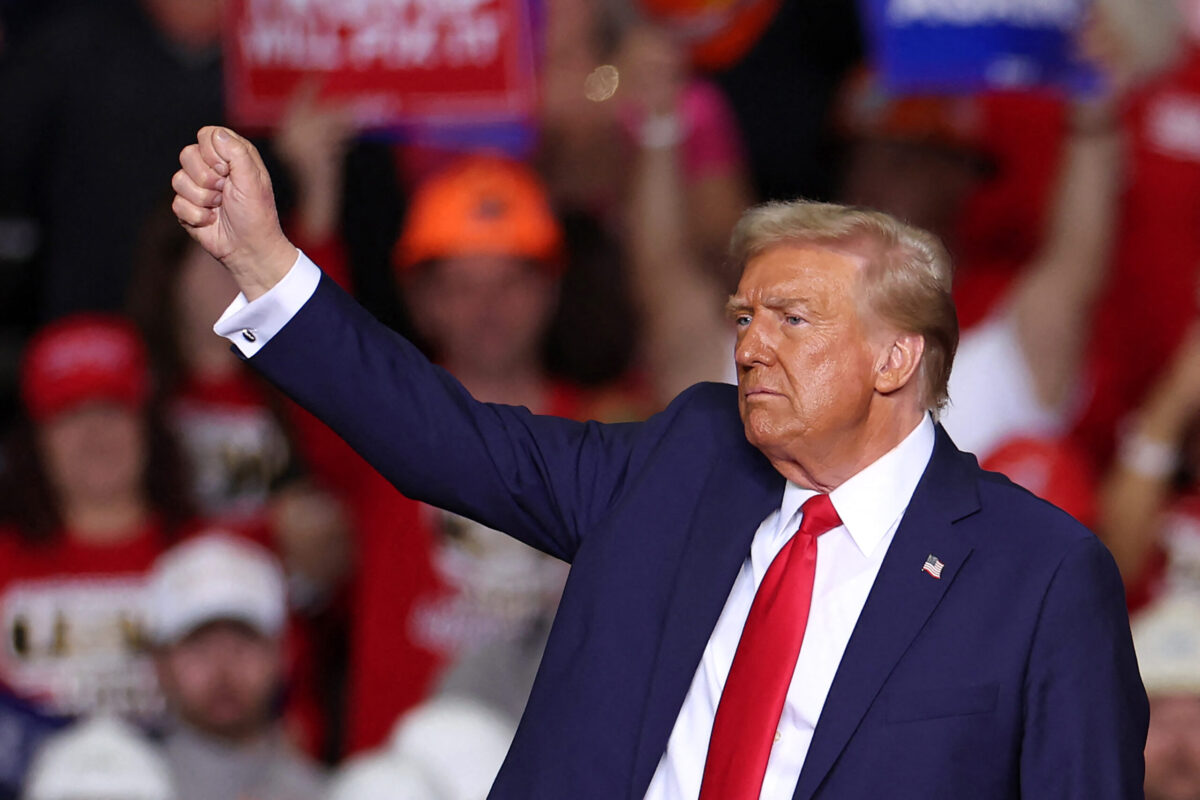The Republican Party is “now more diverse than it’s ever been in modern times,” NBC News National Political Correspondent Steve Kornacki explained on Sunday after President-elect Donald Trump won re-election last week.
Kornacki spoke with “Meet The Press” moderator Kristen Welker about how data show minority groups have shifted toward the GOP over the past eight years while Democrats have attracted more white and college-educated voters.
Trump “did it by transforming the Republican Party. It is now more diverse than it’s ever been in modern times, and certainly much more than when Donald Trump first came on the scene eight years ago,” Kornacki said.
Using a screen behind him, which displayed election statistics, Kornacki talked about how the results from “pre-Trump” in 2012 compared to now showed more voters under the age of 30, those with an income of less than $50,000, and no college degree gravitate to the GOP.
Kornacki discussed race and ethnicity, highlighting the growing “diversity” in the Republican Party.
“Again, pre-Trump versus now,” he said. “The black vote still overwhelmingly Democratic, but that’s a 15-point shift. It used to be 87 points for the Democrats, down to 72. How about this? You’ve heard a lot about it this week. This is what the numbers look like. Hispanic voters were 44 points Democratic before Donald Trump. Now, basically a toss-up constituency. And Asian Americans, a 32-point shift there as well. That’s what’s happened to the Republican Party since Donald Trump became its standard bearer eight years ago. This has been the movement.”
Kornacki explained how “the story is the opposite” for the Democratic Party, going over results showing that more white voters — though not a majority — are turning blue, as are college-educated voters and people earning more than $100,000. He also got into how Trump “swept” the swing states, highlighting Wisconsin as an example, and “pulled off” becoming the first Republican to win the popular vote in 20 years, pointing to the “giant strides” he makes in blue states like California.
Welker mentioned that the results are in and “they’re not going to change,” but she also noted that counting is still happening in some places.
“Yeah. I mean, if you remember from 2020, it took about a month till we got all the national popular vote,” Kornacki said. “And let me just show you, nationally here, one thing we’re waiting on, big — we know California is a Harris state. But as I said, still some votes to come: 75% is in. That means there are millions more votes just from California. And there are other states like this. A lot of it has to do with vote by mail, those ballots taking a long time for some of these states. So when you look at where the current popular vote stands, you know, you’ve got there — probably another 10 million or so, when all is said and done, are going to be added to this. This has been the story for a while in states like California. They take a very long time.”

